
September 29, 2025: Theatre Yesterday and Today, by Ron Fassler
If you’ve never heard the term “restorative justice,” you’ll come to understand it in no uncertain terms while watching the British import Punch, James Graham’s searing drama that opened tonight at the Samuel Friedman; the opening salvo in the 2025-26 Manhattan Theatre Club Broadway season. In Adam Penford’s kinetically staged production, this true story has been adapted from Jacob Dunne’s autobiographical book Right from Wrong about his accidental killing of a young man. James Hodgkinson (the victim, 28 years old) and Dunne (the attacker, 19 years old) collided during a bar fight between strangers that went horribly wrong; a one-punch blow to the head that irrevocably changed the lives of two families. Aided by a talented ensemble in which eight of its nine-member cast convey multiple roles, it is the central performance of Will Harrison as Jacob that delivers the gravitas and, dare I say, dose of genius.
Though slightly fictionalized, the play seems determined to stay as close to what happened as possible. In a recent New York Times interview with Hodgkinson’s parents, Joan and David, the couple discuss their determination over the years to find closure since their son’s 2011 death. Due to Dunne’s guilty plea, there was no trial. His conviction for manslaughter instead of murder brought a sentence of 30 months in prison—reduced to 13–which did little to lessen the pain and understanding of what occurred. Britain’s strict laws on data-protection regulations kept the Hodgkinsons from full discovery, which is when they sought the help of restorative justice, where offenders and victims are brought together through mediation. This what gave the parents a road map, even though it was loaded with land mines. Remarkably, it turns out to allow Dunne the opportunity to heal as well and move forward with astonishing results.
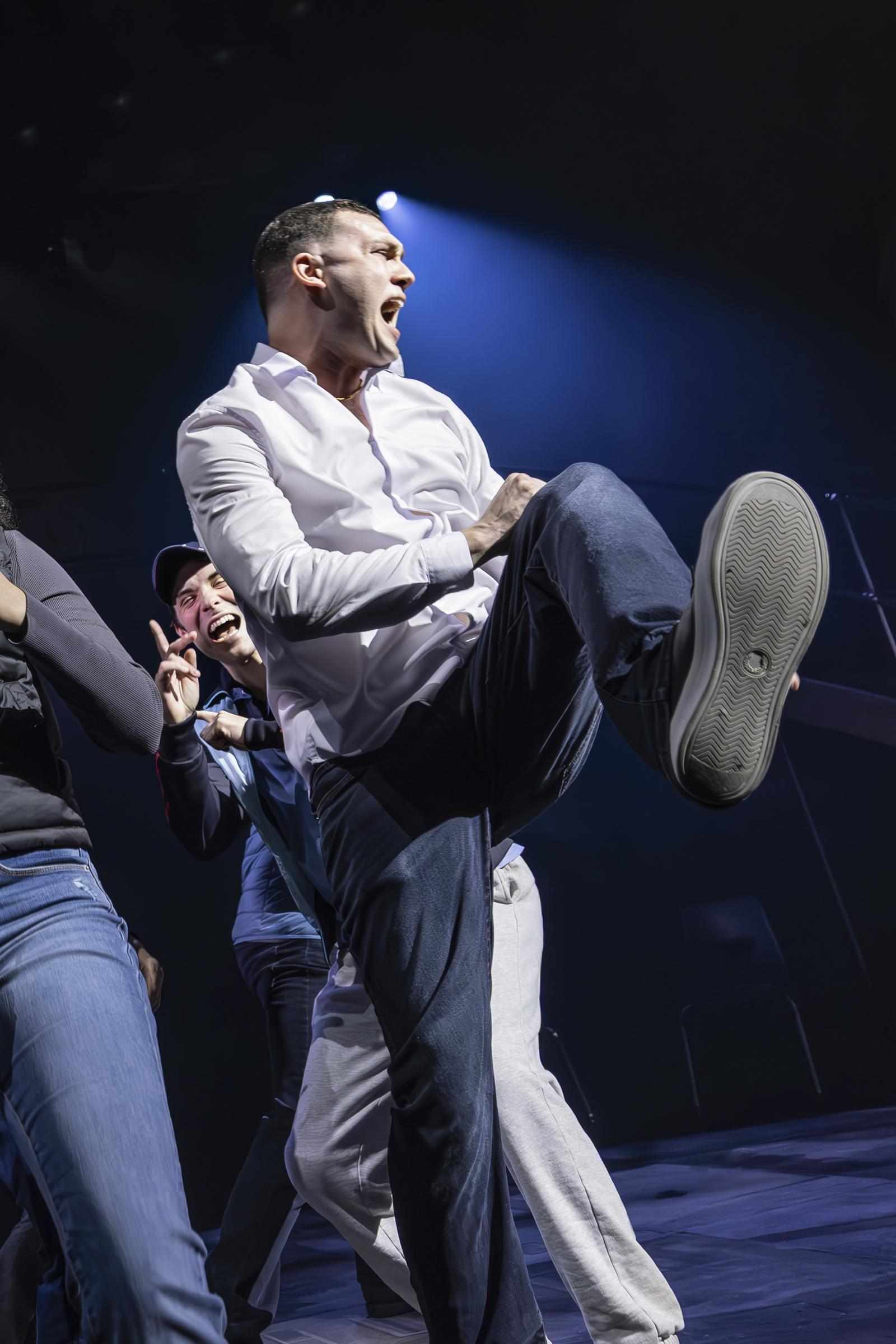
Anna Fleischle’s sturdy unit set (she designed the spot-on costumes as well), is an open center space with two winding, broad staircases that are topped by a landing. Appropriate for much of the nonstop motivity of the performers, it nearly doubles as a jungle gym. What Leanne Pinder, credited with Movement Direction, accomplishes is deeply penetrating. In fact, there is so much stylized movement during its first hour that a rare thing is not out of the question; a Best Choreography Tony nomination for a straight play. However, it’s what is achieved in its second act, where the Hodgkinsons meet with Jacob Dunne, that gives the drama its catharsis. It’s one of those scenes that builds in such a way that you are left dealing with a lump in your throat and an onslaught of tears. The tensions of its lengthy setup feeds on these fiery emotions—honestly earned, I might add—which mirror the audience’s own with those of the characters onstage. It’s moments like these that make attending the theatre the all too rare experience it can be. Judging from the snaps of purses opening for tissues and the sobbing around me, the tensions released can legitimately be compared to Linda Loman’s last words to Willy by the graveside in Death of a Salesman.
Will Harrison, an American actor doing a flawless British accent, gives a performance that is sure to make him one of the theatre’s next go-to actors. Though he’s been slowly building his resume with excellent work, what he delivers with this role is nothing short of heartbreaking. His raw physicality, his marvelous voice, and his access to multiple expressions of feeling complete the portrait of a memorable young man dealing with a crisis of unexpected dimensions. He is aided by the work of two theatre veterans, Victoria Clark and Sam Robards as the Hodgkinsons. The two-time Tony-winning Clark excels as Joan without singing a note (she plays a few other parts too), reminding us that those Tonys weren’t given solely for her musical gifts. And Robards, multi-cast as well, portrays her husband David with profound simplicity. Though working a good deal in film and television, his is a welcome return to Broadway after being away for 17 years.
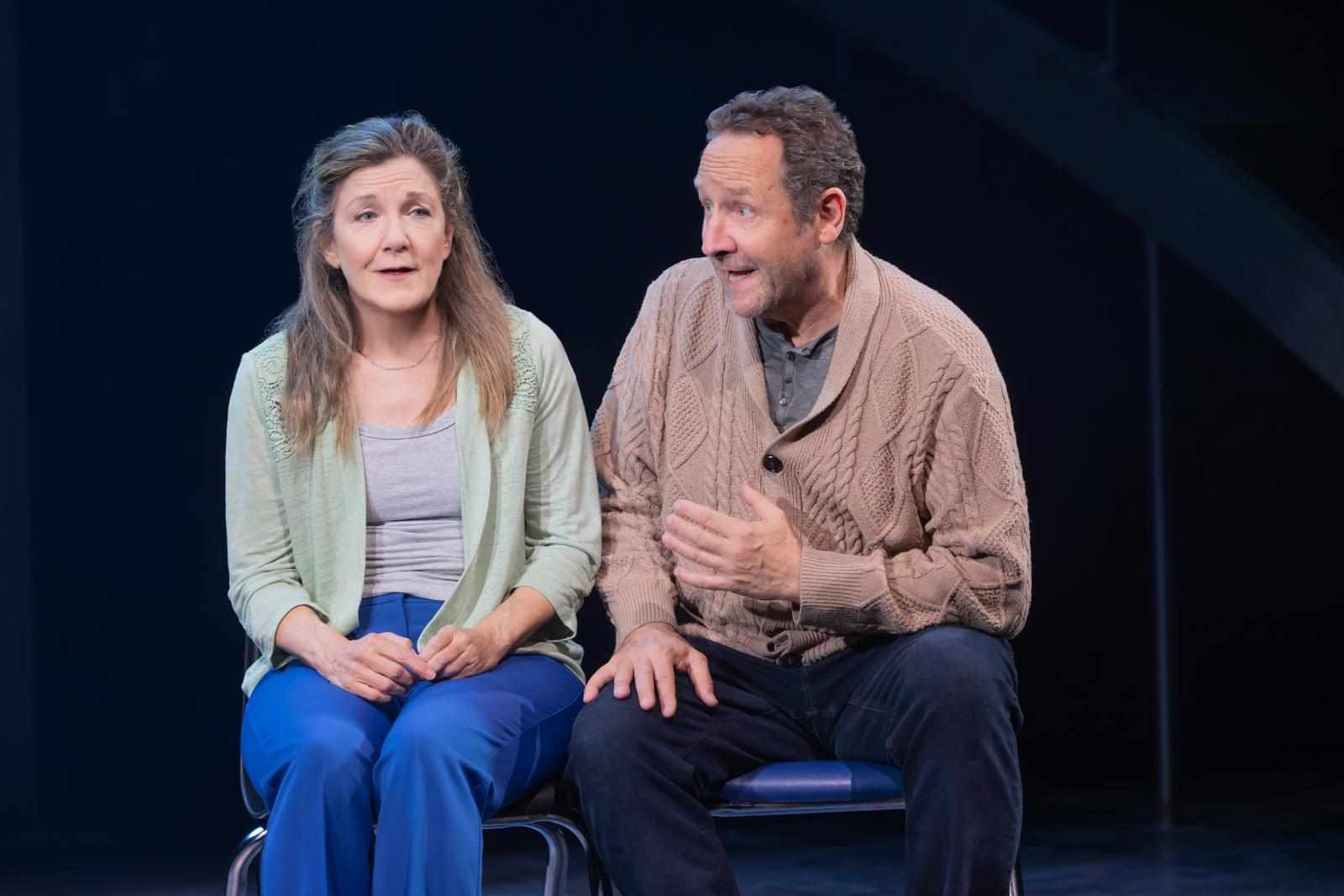
There is outstanding work from Piter Marek, Lucy Taylor, Cody Kostro, and Camila Canó-Flaviá, who share an ability to switch from one character to another with not only lightning speed but with depth and clarity. Director Adam Penford’s way with his actors, in addition to his dynamic staging, makes for an auspicious Broadway debut. As artistic director of the Nottingham Playhouse, where Punch first had its premiere, his closeness to the material might have something to do with it taking place three hours north of London in Nottingham. Penford is clearly someone who knows the territory. Mention should be made of the award worthy lighting from Robbie Butler and a fine sound design by Alexnadra Fay Braithwaite, who also wrote the play’s incidental music.
We are currently living in ever escalating, divisive times. With his insightful play being given a first-rate production here, James Graham presents empathetic humans as a balm for what ails us. Forgiveness is a difficult yet powerful tool for healing and the message delivered by the forceful conclusion of this play has the kind of emotional resonance that sometimes turns a trip to the theatre into something therapeutic and purifying. Punch provides that hit in the solar plexus and then some.
For more information on restorative justice and about the true story around the play, the Manhattan theatre Club has provided a resource guide you can access by clicking here.
Punch is playing in a limited engagement at the Samuel Friedman Theatre, 261 W 47th Street, NYC.
Ron Fassler is the author of The Show Goes On: Broadway Hirings, Firings and Replacements. For news and "Theatre Yesterday and Today" columns when they break, please hit the FOLLOW button.

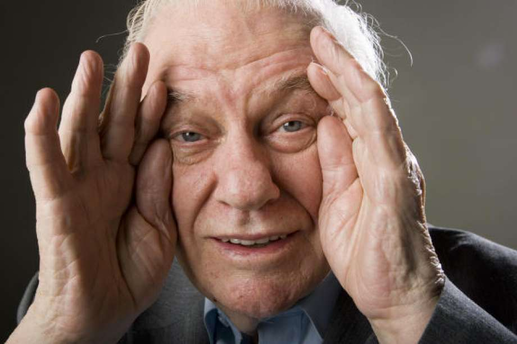

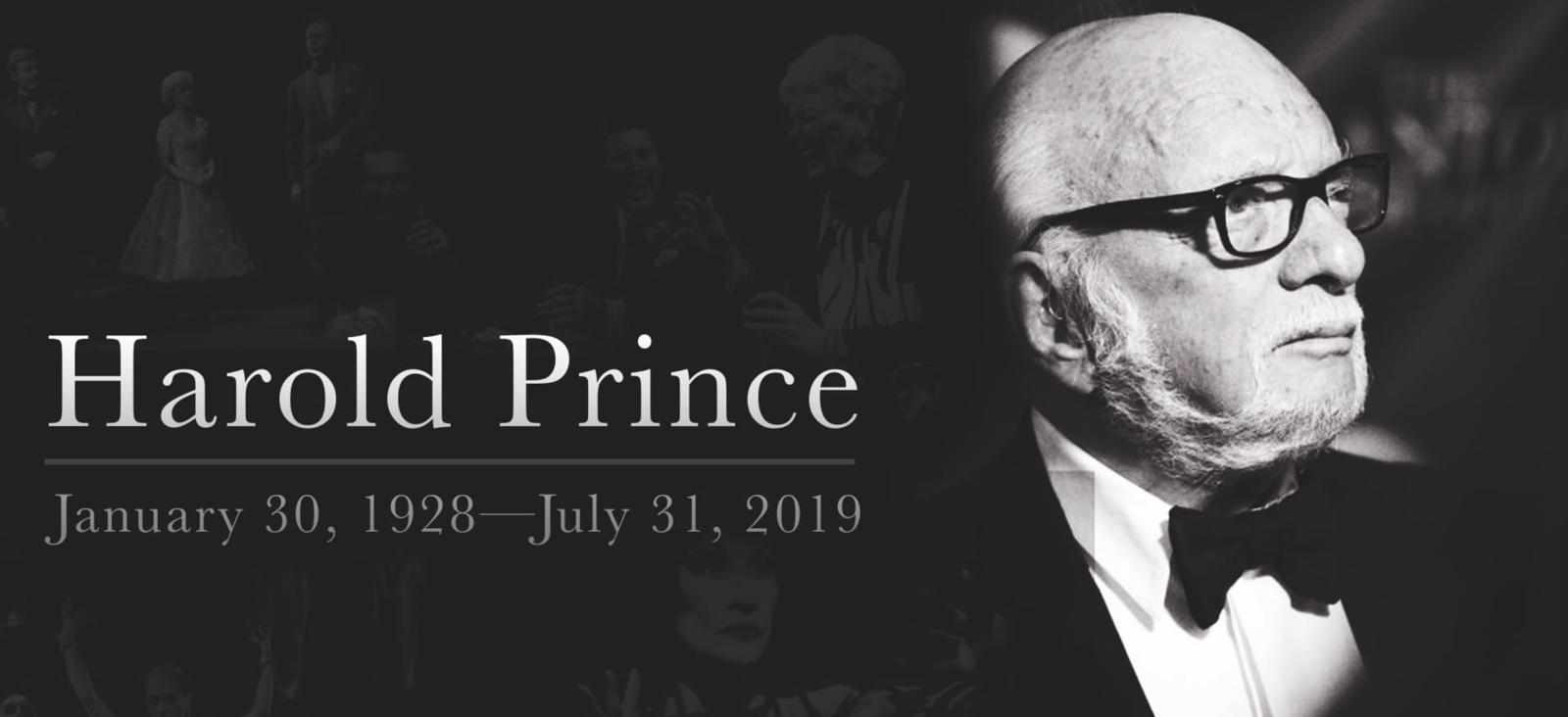
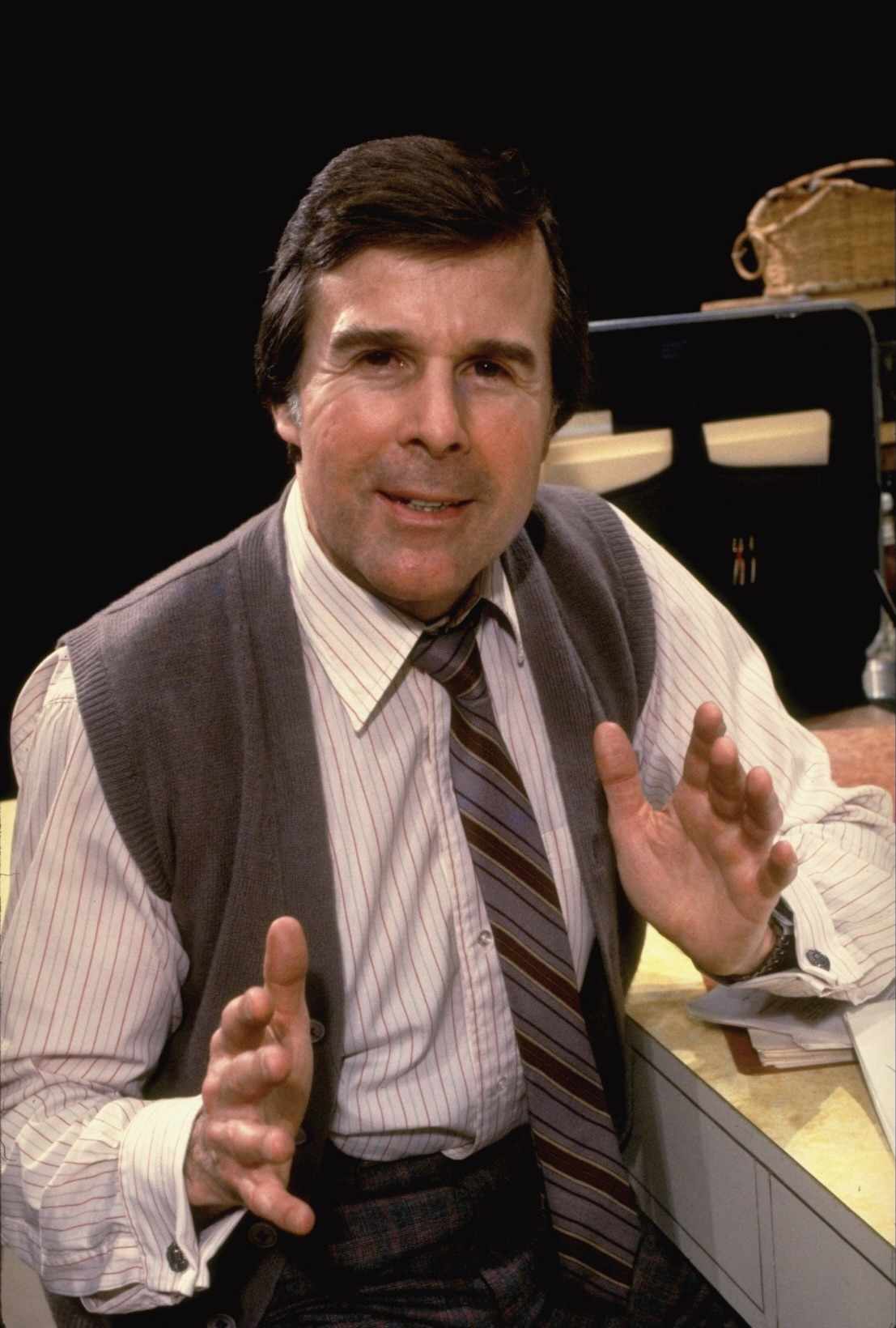















Write a comment ...